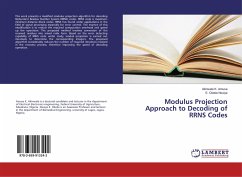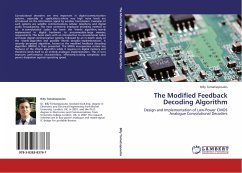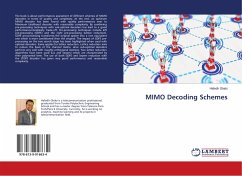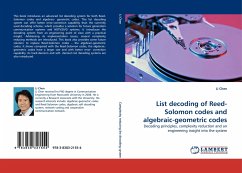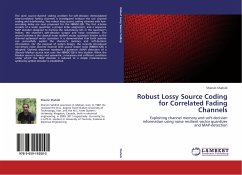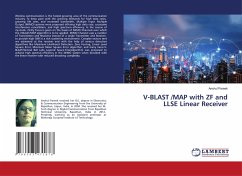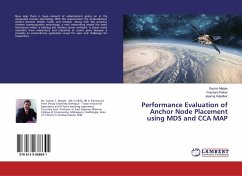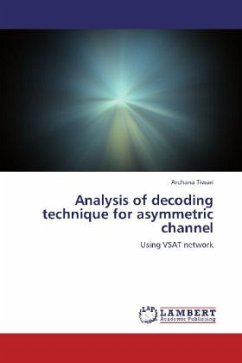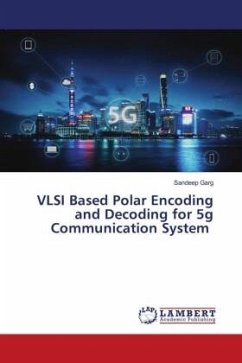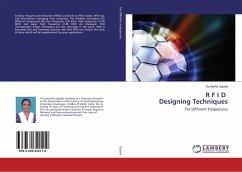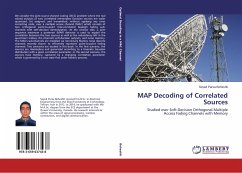
MAP Decoding of Correlated Sources
Studied over Soft-Decision Orthogonal Multiple Access Fading Channels with Memory
Versandkostenfrei!
Versandfertig in 6-10 Tagen
47,99 €
inkl. MwSt.

PAYBACK Punkte
24 °P sammeln!
We consider the joint source-channel coding (JSCC) problem where the real valued outputs of two correlated memoryless Gaussian sources are scalar quantized, bit assigned, and transmitted, without applying any error correcting code, over a multiple access channel (MAC) which consists of two orthogonal point-to-point time-correlated Rayleigh fading sub-channels with soft-decision demodulation. At the receiver side, a joint sequence maximum a posteriori (MAP) detector is used to exploit the correlation between the two sources as well as the redundancy left in the quantizers' indices, the channel'...
We consider the joint source-channel coding (JSCC) problem where the real valued outputs of two correlated memoryless Gaussian sources are scalar quantized, bit assigned, and transmitted, without applying any error correcting code, over a multiple access channel (MAC) which consists of two orthogonal point-to-point time-correlated Rayleigh fading sub-channels with soft-decision demodulation. At the receiver side, a joint sequence maximum a posteriori (MAP) detector is used to exploit the correlation between the two sources as well as the redundancy left in the quantizers' indices, the channel's soft-decision outputs, and noise memory. The MAC's sub-channels are modeled via non-binary Markov noise discrete channels recently shown to effectively represent point-to-point fading channels. Two scenarios are studied in this book. In the first scenario, the sources are memoryless and generated according to a bivariate Gaussian distribution with a given correlation parameter. In the second scenario, the sources have memory, captured by a changing correlation parameter which is governed by a two state first order Markov process.



